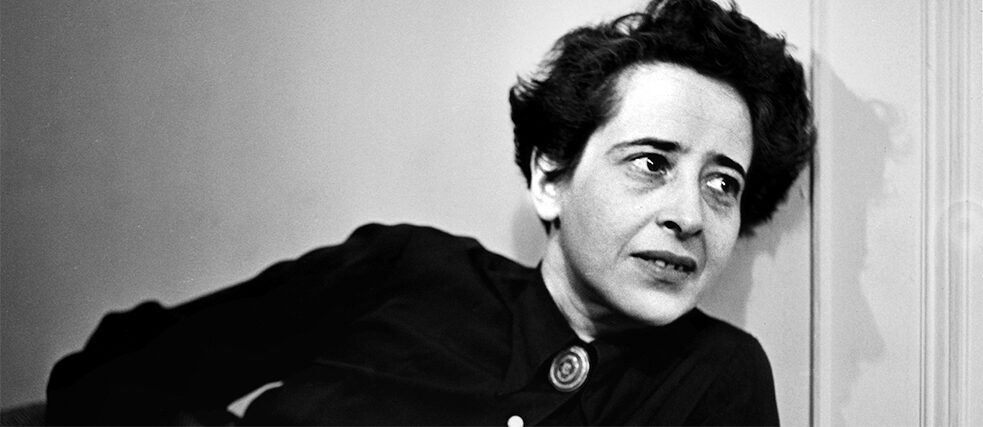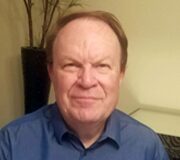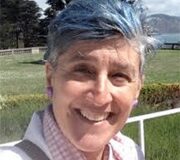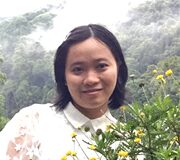Invitation / Call for application Hannah Arendt - Philosopher of Crisis
Deep-Reading Seminar (in English) with
- Dr. Lisa Stenmark, San Jose State University, USA (online),
- Dr. James Barry Jr., Indiana University Southeast, USA (online),
- Dr. Nguyen Thi Minh (MC), HCMC University of Education (live and online)
27.04.2020 | Hannah Arendt - Crisis in Culture
04.07.2020 | Hannah Arendt - Crisis in education
The Goethe-Institut Hanoi provides a space to meet physically and online.
Please apply for your participation by June 25, 2020. Please describe the reason why you wish to participate and how your participation will help others to understand Hannah Arendt’s work. If your application is successful, you will get an invitation and the text for your preparation. The number of participants is limited to 12. A good command of language is of advantage.
RSVP: Wilfried.Eckstein@goethe.de
Complete text for the deep reading: For your participation please make use of the two-page introduction into the method of “deep reading”
Hanna Arendt
(1906–1975) was a German-American philosopher and political theorist. She is one of the most important political philosophers of the twentieth century.The notion of crisis is central to Arendt’s work. Between Past and Future, is a collection of eight essays on crisis in political thought. The topic on June 27 will be “Crisis in Culture”. The chosen text for July 04 will be ”Crisis in Education”.
Über die Gäste
James Barry Jr.James Barry Jr. is Emeritus Professor of Philosophy at Indiana University Southeast. He is of author of Measures of Science (Northwestern University Press) and Co-Editor of Merleau-Ponty: Texts and Dialogues (Humanities Press). He is editor of the journal Arendt Studies published by the Philosophy Documentation Center. He is co-founder and a member of the Board of Advisors of the Hannah Arendt Circle. His most recent articles include “The Growth of the Social Realm in Arendt’s Post-Mortem of the Modern Nation-State” and “The Risk of Total Divergence: Politicized Intelligence and Defactualization in the Age of Imminent War.” He is currently completing two book-length studies, one on the legacies of expropriation and the rise of the state of modern poverty at play in Arendt’s work and the other on the ways in which the loss of land-based communities sets the stage for our post-industrial consumeristic world.
Trained in 19th and 20th century continental philosophy, I came to Hannah Arendt’s work fairly late. Her work opened up new possibilities for understanding our contemporary crises as a legacy of the ambiguous western tradition that we have inherited. Her work represented for me a new way of thinking about our world and ourselves that seemed to lie outside the mainstream of western philosophical practice while it also paid homage to the radical questioning that has always driven the best of the western intellectual traditions. Arendt’s emphasis on our collective capacity to begin something new seems especially important in an age when we are confronted by unprecedented challenges and perplexities, such as climate change and the widespread loss of traditional identities. She reminds us that the future is open so long as we understand our shared responsibility for what lies ahead and behind us.
Lisa Stenmark
Lisa Stenmark lehrt an der San Jose State University, USA. Sie ist Autorin von Religion, Science and Democracy: A Disputational Friendship. Sie ist Mitherausgeberin (mit Whitney Bauman) der Reihe Religion and Science as a Critical Discourse. Sie hat zahlreiche Artikel zu Religion, Wissenschaft und Technologie veröffentlicht und sich in jüngerer Zeit damit beschäftigt, wie sich bestimmte Denkweisen zu „Religion und Wissenschaft“ negative auf die Globalisierung auswirken, insbesondere im Kontext Vietnams. Sie engagiert sich in der American Academy of Religion, dem Arendt Circle, sie ist Fulbright-Stipendiatin. Sie hat einen MDiv/MA von der Graduate Theological Union und einen Ph.D. von Vanderbilt.
Lisa Stenmark sagt über Hannah Arendt:
„Ich habe über 20 Jahre lang versucht, die Welt mit Hannah Arendts Augen zu sehen, und obwohl ich nicht mit allem einverstanden bin, was sie schrieb, finde ich, dass ihre Perspektive mir hilft, die Welt besser zu verstehen. Die Vietnamesen werden sicherlich auch viele Aspekte von Arendts Gedanken hilfreich finden - einschließlich ihres Verständnisses für Modernität, für Bildung und die Verführungen des Konsums. Ich freue mich darauf, Arendt mit vietnamesischen Augen zu sehen! Ihr größter Beitrag könnte jedoch ihre Herangehensweise sein - eine Art Geschichten zu erzählen, die es uns ermöglicht, gemeinsam über globale Probleme nachzudenken, ohne eine globale Kultur aufzuzwingen.“
Nguyen Thi Minh
Nguyen Thi Minh ist Akademische Rätin an der Fakultät für Linguistik und Literaturwissenschaft der Pädagogischen Hochschule von Ho-Chi-Minh-Stadt (Saigon). Ihre Forschungsschwerpunkte sind vergleichende Literaturwissenschaft, Filmadaption auf der Basis von Subjektivitätstlehre und Semiotik. Sie hat an gemeinsamen Forschungsaktivitäten in Japan (2017, 2019) und den USA (2017-2020) sowie an der Organisation und Präsentation auf zahlreichen Konferenzen im In- und Ausland teilgenommen. Sie wirkt als Übersetzerin und Mitübersetzerin einiger klassischer philosophischer Publikationen. Sie ist außerdem Mitbegründerin von "The Ladder - einem Lernraum für die Öffentlichkeit", einem Raum für alle, die es lieben, Wissen zu teilen und akademisches Wissen zu vermitteln. Dies gilt insbesondere für die Jugendlichen in Vietnam.
Nguyuen Minh Thi über Hannah Arendt
„Ich beschäftige mich seit über 10 Jahren mit Semiotik und habe mit dieser Methode Literatur und Kino studiert, insbesondere die Darstellung von Frauen in Literatur und Kino aus einer vergleichenden Perspektive. Die Semiotik hat zwei Hauptquellen. Der erste Zweig stammt von Ferdinand de Saussure und der Sprachwissenschaft, der zweite von Charles Sanders Peirce und der Philosophie. Aus diesem Grund habe ich lange Zeit Philosophie studiert und übersetzt. Hannah Arendt gilt unter modernen Philosophen als Philosophin der Krise. Sie bietet uns eine Denkweise in Krisenzeiten an: Wenn das Alte weg ist, ist das Neue noch nicht geformt. Besonders interessiert mich Hannah Arendts Idee, zusammen zu leben und für die Welt zu sorgen, die mir für das Studium der Rolle der Frauen sehr wichtig ist. Hannah Arendt wird mir auch helfen, viele aktuelle Themen zu Vietnam zu überlegen und zu beantworten.“



